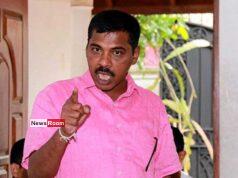(Part VIII of this article appeared yesterday)
Reflections on Perplexity in Sri Lankan Foreign Policy (1990-2024)
Since the end of the Cold War, the three geopolitical spheres of Sri Lanka have been significantly shifted. At the same time, the internal politics and the economy have also faced intense volatility, moving from war to a post-war environment. However, Sri Lanka’s foreign policy moved without a clear strategic direction, often following an inconsistent, zigzagging path. Sri Lanka’s foreign policy objectives shifted frequently, driven more by internal political winds than by a coherent long-term vision. Hence, the country’s foreign policy was proceeding without a clear strategy, pursuing immediate yet undefined goals in an ad hoc manner. As a result, contradictions and inconsistencies became the hallmark of foreign policy. Decisions were often made on the spur of the moment, with little consideration for their alignment with other policy stances within the same administration.
Sri Lanka’s Ministry of Foreign Affairs (MFA) was once staffed by internationally famed, highly skilled foreign policy professionals who possessed deep understanding of global affairs and international trends. These professionals provided essential guidance to political leadership, ensuring the country’s diplomatic effectiveness. However, mirroring broader governance deficits across various sectors of the state, the MFA has later gradually lost its skilled manpower and effectiveness. In particular, following the departure of Minister Lakshman Kadirgamar, who sought to restore order and proper procedures to the MFA, excessive politicisation and the lack of effective refresher programmes on global affairs and diplomacy have severely undermined the ministry’s ability to fulfill its crucial role during this challenging period. As a result, the MFA has struggled to formulate and implement a coherent foreign policy. Internal feuds among staff and the pursuit of political favour for lucrative diplomatic appointments have further eroded its focus on substantive diplomatic engagement. Consequently, the MFA has become increasingly ineffective in advancing Sri Lanka’s foreign policy objectives, reflecting the overall governance deficit facing the Sri Lankan state.
Policy, in general, consists of two fundamental components: clearly identifying and prioritising goals and objectives and developing effective strategies to achieve them. These elements work together to ensure that policies are actionable and aligned with desired outcomes. Policy-making is a dynamic and evolving process that requires continuous assessment of the context in which it operates. At the same time, without viable implementation mechanisms, even the most thoughtfully crafted policies remain theoretical rather than practical. Therefore, successful policy-making demands not only clear objectives and strategies but also robust structures for execution and adaptation to ensure policies translate effectively into real-world implementation. By the same token, even a highly skilled implementation mechanism would become impotent without clearly prioritised objectives and a well-defined implementation strategy. During this period, Sri Lanka struggled, to varying degrees, across all three key aspects of policy-making: setting clear objectives, developing effective strategies, and ensuring successful implementation.
The core element of foreign affairs is a state’s interaction with other states within the international system. While the scope and agency of foreign policy have expanded to include other actors and factors, the state still remains the dominant player. According to Barry Buzan’s categorization (Buzan, 1991) of weak and strong states, Sri Lanka exemplifies a weak state–not due to its military capability or size, but because of its internal structural weaknesses, particularly a lack of socio-political cohesion. Weak states are characterized by poor governance, low political cohesion, a legitimacy deficit, and ideological instability. When a state is structurally weak and insecure—especially a small state in the Global South—this insecurity is reflected in its foreign policy. In Sri Lanka’s case, its domestic vulnerabilities directly shape its foreign policy approaches. A weak state and politically threatened regimes can hardly adopt strong foreign policy stances.
Ethno-political vulnerability has been the primary factor consuming the energy and focus of Sri Lanka’s foreign policy. It remains the central weakness of the state. There were several attempts to build an inclusive state by introducing structural changes to the system Sri Lanka inherited in 1948. However, many of these efforts were abandoned midway due to a lack of political courage and will, especially in the face of opposition. The new constitution proposed in1996, which included provisions for genuine power devolution to the regions, was delayed in an attempt to gain opposition support. Ultimately, it was effectively rejected in parliament. Meanwhile, the steady erosion of democracy and the politicisation of administrative institutions gradually undermined the legitimacy of the state. Economic mismanagement and corruption further weakened the economy. As a result, three key domestic vulnerabilities became defining features of Sri Lankan polity—ethnic, economic, and political.
The hard-fought military victory and the end of the war in 2009 presented a historic opportunity to transform negative peace into a positive peace by laying the foundation for an inclusive and stable state. However, Sri Lanka failed to seize this moment. As a result, new challenges relating to ethnic reconciliation emerged with new vigor in the post-war context and state’s ethnic vulnerabilities played a crucial role in shaping foreign policy, as issues such as transitional justice, accountability, and the full implementation of the 19th Amendment shifted from being purely domestic matters to central foreign policy issues. When different political leaders within the same government express contradictory views—or when the same leaders take inconsistent positions over time—Sri Lanka’s Ministry of Foreign Affairs and its diplomats struggle to justify the country’s stance before the international community. As a small state that is both economically and politically fragile, Sri Lanka cannot pursue a strong foreign policy without effectively addressing these domestic vulnerabilities.
Sri Lanka’s economic vulnerability stems from both structural weaknesses and internal mismanagement of the economy. As a developing economy in the Global South, the country has faced deep-rooted structural weaknesses that have left it dependent on external forces for economic stability. Sri Lanka’s economy has long faced structural deficiencies, relying heavily on key sources such as tourism, export-oriented garments, and remittances. Additionally, high levels of debt—primarily due to excessive borrowing from international creditors—have created a cycle of dependency on foreign aid and international financial institutions. Clearly demarcating the internal policy sphere from the external one is difficult, as structural economic vulnerabilities both influenced policy priorities and constrained the pursuit of a strong foreign policy.
Even more pressing issue is the mismanagement of the economy and widespread corruption, both of which have severely undermined Sri Lanka’s economic stability. Especially, the post-war governments have pursued unsustainable fiscal policies, excessive borrowing, and poor allocation of public resources. Corruption has further deepened the crisis, marked by allegations of fund misappropriation using political power, a lack of financial transparency, and nepotism in economic decision-making. These issues have eroded investor confidence, discouraged foreign direct investment, and contributed to capital flight. Given Sri Lanka’s reliance on foreign assistance and international financial institutions, its ability to take strong, independent stances on economic and political matters is significantly constrained. Economic survival often depends on complying with the conditions set by lenders. Economic vulnerabilities, stemming from the governments’ economic practices, significantly impact Sri Lanka’s foreign policy, often constraining its ability to act independently.
Ultimately, these vulnerabilities are directly linked to the modus operandi of governing regimes. But why did political leadership behave in this manner? The lack of vision cannot be solely attributed to the subjective traits of individual leaders. Rather, systemic and institutional factors play a crucial role in shaping decision-making. However, this does not absolve political leaders of responsibility for foreign policy failures. Too often, they prioritize personal political interests over national priorities, leading to governance and diplomatic shortcomings.
Even after the decisive military victory over the LTTE, the regime in power remained threatened and insecure. The deployment of armed squads—both in uniform and plainclothes—and the use of force against civilians engaged in legitimate, non-violent protests are not characteristics of a stable and confident regime. Instead, such actions reflect the behaviour of a weak state and a threatened leadership. Even before the Aragalaya, successive regimes repeatedly used military force against peaceful protesters, as seen in Katunayake (June 2011), Chilaw (February 2012), and Rathupaswala (August 2013). A state that feels threatened and insecure cannot pursue a strong foreign policy.
The insecurity of regimes arises from their weak and fragile social and economic foundations. A dependent and weak economy has failed to give birth to strong, independent, and self-sustaining economic elites. Instead, these elites rely heavily on the state for their economic survival. A defining feature of Sri Lankan politics is the emergence and dominance of a political class that alternates in power. This political class coincided with the expansion of the public sector. This paved the way for the political class to siphon on state resources using political power. As a result, economic decisions have often been driven by personal interests rather than national priorities— a dynamic that is also reflected in the country’s foreign policy.
After years of war, the Sri Lankan people, regardless of ethnic divisions, are yearning for political reforms to strengthen democracy and good governance. However, successive politically insecure regimes continue to falter in implementing democratic reforms, often prioritising their own survival over long-term institutional change. This is evident in the constant vacillation of political leaders and their contradictory statements to the international community. This insecurity is evident in the constant vacillation of political leaders regarding reform efforts, as well as their contradictory statements to the international community. What we are witnessing is a steady backsliding of democracy and the rise of authoritarian tendencies, which are characteristic of a weak regime.
The Aragalaya highlighted a crucial truth: economic crises are often the result of deep-seated political failures. Sri Lanka’s financial collapse was not merely a product of mismanaged economic policies but a consequence of prolonged corruption, governance deficit, and unchecked power. The economic collapse exposed how unchecked power, lack of transparency and poor decision-making can destabilise an entire economy, underscoring the urgent need for political accountability and structural reforms.
In the short term, urgent economic measures are necessary to mitigate the impact of bankruptcy and restore some level of financial stability. Debt restructuring, securing international assistance, promoting exports, and implementing fiscal discipline are critical steps in this process. A sustainable solution requires addressing the underlying political crisis that initially triggered economic turmoil. Without political reforms—such as strengthening democratic institutions, ensuring accountability, curbing corruption, and promoting inclusive governance—economic policies will not succeed. Economic stability, investor confidence, and sustainable growth all hinge on these reforms. Political reform is the sine qua non of a strong foreign policy.
One of the key responsibilities and challenges facing the new NPP government is pursuing a strong foreign policy with a strategic perspective. This is a formidable task that requires accurately identifying foreign policy priorities, selecting viable strategies appropriate for a small island state, and advancing them prudently while carefully assessing critical developments in regional and global political spheres. The Ministry of Foreign Affairs (MFA), a crucial instrument for implementing foreign policy, is currently in a state of disarray and confusion. Restoring stability through the de-politicisation of its administration and strengthening the professional development of its staff through targeted programmes remain urgent priorities.
Foreign policy is a key aspect of statecraft. Given its linkages to the policy spheres, foreign policy cannot be isolated from state’s broader policy directions. A comprehensive approach with well- defined policy orientation is essential. The significance of a coordinated foreign policy with a strategic vision aligned with national interests has grown even more critical due to pivotal developments in Sri Lanka’s external geopolitical environment, making it no longer possible to continue responding in an ad-hoc manner. How to pursue relative autonomy vis-à-vis India while getting benefits from India’s economic and scientific advancements is decided with a clear policy direction with realistic
understanding with our strengths and weaknesses. Our role amid the emerging power competition between great powers in the Indian Ocean needs to be decided with a clear perception of our national interests. At the global level, the global shift of power balance that made 21st century an Asian century is critically important to a strategically located small state. Navigating Sri Lanka’s position in the highly volatile Indian Ocean where the direction of global power is decided requires a proper evaluation of our national priorities, rather than advancing the narrow self-interests of the ruling class.
A strong foreign policy depends on an objective evaluation of Sri Lanka’s national interests, which in turn requires a strong state. In the Buzanian sense, a strong state—marked by institutional stability, legitimacy, and internal cohesion—enables the pursuit of a coherent and independent foreign policy. Hence, the necessity of a strong foreign policy underscores the critical importance of comprehensive state reforms. Political reforms aimed at dismantling entrenched political authority and economic power linked to it is essential for building a strong foreign policy. In the post-war years, political reforms have been held hostage by military victory and war triumphalism. However, critical state reforms can no longer be postponed.
State reforms are integral to democratic political reform. The link between democratic governance and a strong foreign policy is undeniable. A capable, depoliticized foreign policy workforce that provides informed policy input is essential for a healthy foreign policy. However, corruption, nepotism, and governance deficits—often tied to the dominance of the political class—undermine these efforts. This same class has also been a driving force behind democratic backsliding. Institutionalizing good governance and the rule of law requires comprehensive democratic reforms in both institutions and processes.
The thrust of the National People’s Power (NPP) government’s mandate centers on implementing long-overdue democratic reforms. These reforms are essential not only for strengthening internal governance but also for shaping a credible and effective foreign policy. In the long run, the success of the NPP’s foreign policy will depend on its ability to fulfill its domestic commitments to political and institutional reforms, one that aligns with both the aspirations of its people and international democratic standards. However, achieving comprehensive democratic reform is a gradual process that requires political will, courage and strategic planning. (Concluded)
References
Aryasinghe, Ravinatha. ‘Sri Lankawa ha kalapeeya sahayogathawa” Jagath ha Kalapeeya Sandharbhahehila Sri Lankawa (in Sinhala), Colombo: Bandaranaike Center for International Studie, 1997.
Buzan, Barry. 2002. “South Asia moving Towards Transformation: Emergence of India as a Great Power”, International Studies, 39:1, 2.
Buzan, Barrr. 1991. People, States and Fear – Agenda for International Security Studies in the Pos-Cold War Era. Boulder, Lynn Rienner Publishers.
Chang, Michael. 2024. ” India’s Secretive Nuclear Submarine Base Takes Shape in Andhra Pradesh,” Military News, 06 June 2024. https://military.news/ins-varsha-india-s-secretive-nuclear-submarine-base-takes-shape-in-andhra-pradesh
Deb. Sheershoo. 2021, “INS Varsha: India’s Secret Nuclear Submarine base”, 2021, DefenceXP, www.defencexp.com › ins-varsha-indias-secret-submarine-nuclear-base.
Forbes India, 10 January 2025. https://www.forbesindia.com/article/explainers/top-10-largest-economies-in-the-world/86159/1
Global Firepower 2024, www.globalfirepower.com
Jayathilake, Dayan. “Premdasa: ‘Savadeshya’ & Docial Democracy,’ Colombo Telegraph, 24 June 2014
Jayawardane, Amal. 2025. “Sri Lanka’s Foreign Policy Challenges in the Post-War Period”, in Gamini Keerawella and Amal Jayawardane , eds., Reflections on the Continuing Crises of Post-War Sri Lanka. Colombo, Design Systems (Pvt) Ltd, 2025
Jennings, Ivor. 1951. Commonwealth in Asia. London. Oxford University Press: P.113
Nixon. Richard M, 1973. United States Foreign Policy for the 1970s: Shaping a Durable Peace – A Report to the Congress, GPO, 1973.
The Hindu, 04-01-2022
Pecotic, Adrian. 2019.”Whoever Predicts the Future Will Win the AI Arms Race”, Foreign Affairs, 5 March 2019.
Rehman, Iskander. 2015. Murky Waters: Naval Nuclear Dynamics in the Indian Ocean. Washington D.C: Carnegie Endowment for International Peace.
Salter, Mark. 2015. To End a Civil War- Norway’s Peace Engagement in Sri Lanka, London, Hurst & Company.
Smith, Chris. 2003.In the Shadow of a Ceasefire: The Impact of Small Arms Availability and Misuse in Sri Lanka – Small Arms Survey – Occasional Paper No.11 Geneva. Graduate Institute of International Studies, October 2003
World Economic Forum. 2019. “We’ve entered the Asian Century and there is no turning back”, October 11, 2019. https://www.weforum.org/agenda/2019/10/has-world-entered-asian-century-what-does-it-mean/
by Gamini Keerawella








